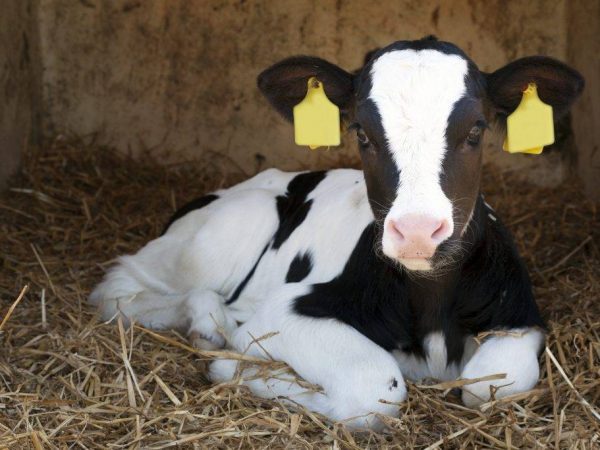How to properly treat constipation in a calf
When raising cattle, sometimes there are problems with the digestion of animals. This is especially true for young animals. The fact is that the food system of calves is not yet as developed as in adults, hence disorders can be observed. Many farmers are interested in the question of what to do if a calf is constipated. In this situation, you need to know how to treat constipation in calves or cows, and also why such congestion occurs.

Calf constipation
If the calf is constipated, the main cause is inadequate feeding and care. Stool problems occur most often in young animals at the age of 2-3 months. It is not easy to notice constipation in bulls or cows, as all symptoms may not be recognized on the first day. If constipation lasts more than 1-2 days, the animal begins to behave in a strange way. This can be seen in behavior, it becomes either suspiciously calm or overly violent.
Symptoms of constipation in calves
- lethargy;
- drowsiness;
- the calf can lie down all the time and not allow it to come to itself;
- bloating;
- the absence of feces or the release of deformed feces.
How to recognize constipation in young animals
First of all, you need to observe your herd every day, so you will know how the animals feel. If you notice that the calf does not go to the toilet for the first day, then you need to find out the reasons and start treatment. On the first day of stool retention, it is not always noticeable that young animals are uncomfortable. You can notice the first symptoms a day or two after a delay in bowel movement. With constipation in a dairy calf, if it lasts more than a day, the animal can follow from corner to corner and touch the stomach with its hooves.
The calf may moo when urging to defecate. If you suspect constipation in calves, you should invite a veterinarian for an examination. Sometimes veterinarians feel the rectum to see if there is a stool blockage or, possibly, another cause of stool retention. Before the veterinarian arrives, it is important to remember what the calf ate these days. The main reasons for the stagnation of feces in young animals is the use of large root crops, which can create a plug. When giving root crops, they need to be peeled and chopped into small pieces.
Treatment of constipation in cattle
If there is constipation in calves, it should only be treated by qualified professionals. Regardless of what the causes of constipation are, you need to know that at birth the young should be only with their mother and the cubs cannot be taken off. If you separate the calves and the female early, then the young may have problems with digestion, since in the first months the young feed exclusively on mother's milk, large roots simply will not be digested in the fragile digestive system. What to do with constipation and what treatment to take?
You need to act based on the cause of constipation. If the problem is poor nutrition, then a balanced and nutritious diet should be created based on the age of the calf.
If the mother is feeding the baby, the colostrum should be healthy and nutritious. Youngsters should have enough breast milk. Sour and spoiled milk should not be given; calves may stagnate from it.
You also need to monitor the daily food intake: if the animals do not have enough nutrition, then the calves can greedily swallow milk so that it will simply slip into the lower stomach without lingering in the body.
Dysfunction of the goby's intestines directly depends on its psychological state. If the young are removed from the mother early, then a stress barrier occurs, which in the future can lead to stool retention.
Preventing constipation in calves
About 1.5-2 months after birth, animals begin to consume fresh grass in small quantities. If this period occurs in spring or autumn, then you need to be very careful and make sure that the young do not eat the frozen grass, which can provoke bloating, constipation or diarrhea. As a preventive measure, milk that is too cold or hot should not be given.
It is important to always ensure that the barn is equipped with drinking bowls with clean water at room temperature. Water deficiency can lead to indigestion. Also, so that animals cannot eat foreign objects, it is necessary to clean the room and not leave old bedding, rotten hay or work equipment. To prevent all kinds of digestive problems, newborn calves should be properly fed and looked after so that they do not develop digestive upsets in the future.


